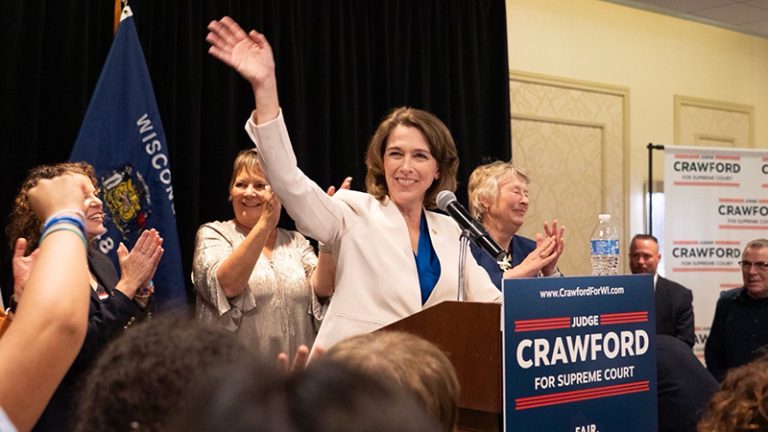
On April 1, the United States closely followed special elections in Florida and Wisconsin. Under ordinary circumstances, an April election to fill two House seats in Florida and a Supreme Court vacancy in Wisconsin would not garner national attention, but these are not ordinary times. Tuesday’s elections offered a first measure, however small, of the country’s feelings toward President Donald Trump amid a series of recent controversies and radical policy changes.
Florida Special Election
Republicans expanded their control of the House of Representatives by winning both races in Florida. In the special election for Florida’s 1st District, voters elected Republican candidate Jimmy Patronis, the state’s chief financial officer, to replace former Rep. Matt Gaetz. Gaetz had resigned as congressman to join the Trump administration as its attorney general, though his bid to do so quickly failed. Patronis faced off against Democratic candidate Gay Valimont, who lost to Gaetz in 2024. In a district that Trump carried by 37 percentage points in the 2024 Presidential Election, Patronis’ victory was largely expected, though it is notable that his margin of victory was only 14.6 percent.
The race for Florida’s 6th District drew considerably more attention. Republican candidate Randy Fine faced off against Democratic candidate Josh Weil in a nationally covered race to replace former congressman and now National Security Advisor Mike Waltz. Fine had concerned some Republicans due to his poor fundraising numbers and slow start to the campaign trail. Additionally, during his time in the state senate, Fine developed a reputation for his public spats with Florida’s governor, Ron DeSantis. Particularly notable was Fine’s criticism of DeSantis’ trip to Ireland in August, which Fine called an “anti-Semitic country” on account of its recognition of a Palestinian state. These factors led some to think that Weil might be able to pull off an upset in a district that Trump carried by 30 percentage points in November, and polling leading up to the election suggested that there was a chance it could happen. But after last-minute encouragement to voters from President Trump and an injection of cash, Fine ended up carrying the district by 14 percent.
It is worth noting that a Republican underperformance in two strongly red districts has come at a tumultuous time for the party in the House. In the last week, fears of losing their slim majority prompted Trump to withdraw Rep. Elise Stefanik’s (R-NY) nomination as US Ambassador to the United Nations, signaling concern for lawmakers’ ability to fast-track his agenda through Congress. Aside from Stefanik’s withdrawal, the party is also undergoing a moment of internal crisis. On April 1, House Speaker Mike Johnson (R-LA) was forced to cancel votes for the rest of the week after nine Republicans joined Democrats in opposing a procedural rule that would have stalled efforts to allow proxy voting for new parents. As a result of not adopting a rule, debates and votes around key legislative items on the Trump agenda were brought to a halt. With House Republicans feuding internally, the party’s underperformance in Florida has created additional urgency to advance legislation before midterm elections in 2026.
Wisconsin Election
Conservatives’ standing among voters was also tested in Wisconsin’s special election to fill a vacancy on the state’s Supreme Court. Though technically a nonpartisan race, the election decided the ideological makeup of the court, and liberal candidate Susan Crawford’s victory means that the state’s court will now boast a liberal majority. Much of the story surrounding the Wisconsin election focused on Trump advisor Elon Musk’s involvement in the race, which he said would decide who “steers the course of Western civilization.” To some, Musk’s attempts to influence the election created a feeling that it was a partial referendum on his role in the Trump administration. With the court likely to hear cases relating to hot-button partisan issues, Musk’s decision to get personally involved may also have stemmed from a lawsuit that his company, Tesla, has brought against the state over its decision to prohibit car manufactures from selling directly to consumers. That case is currently before a county court but could work its way up to the Wisconsin Supreme Court in the future. These factors led Musk to pour in $21 million into the race and offer $100 to voters who signed a petition opposing “activist judges” and $1 million checks to two signatories. The conservatives’ defeat, therefore, will be seen as a disappointment to Republicans and lends further credence to concerns that Musk represents a political liability for Trump.
Takeaways
Despite Republicans’ relatively poor performance on April 1, it would be wise to temper any sweeping conclusions. Republicans’ underperformance may very well continue into midterms next year, but the special elections should not necessarily be read as a rebuke of the Trump administration’s policies nor a comprehensive measure of how Americans are feeling at this moment. Florida’s election was held in two deeply red districts where fears of an upset ended up being overblown. Poor voter turnout also raises further questions around how much can really be inferred from the results. Wisconsin’s outcome has been sold as a decisive rejection of Musk’s role in the Trump administration, but there is no way of knowing the degree to which he factored into voters’ decisions, especially so in a state that has such a historically engaged voter base. So, while some might be ready to declare the results of the special elections a major victory for Trump’s opponents, one imagines that any celebrations will be short-lived as the administration steamrolls ahead with its agenda.
The views expressed in this publication are the author’s own and do not necessarily reflect the position of Arab Center Washington DC, its staff, or its Board of Directors.
Featured image credit: twitter/crawfordforwi

